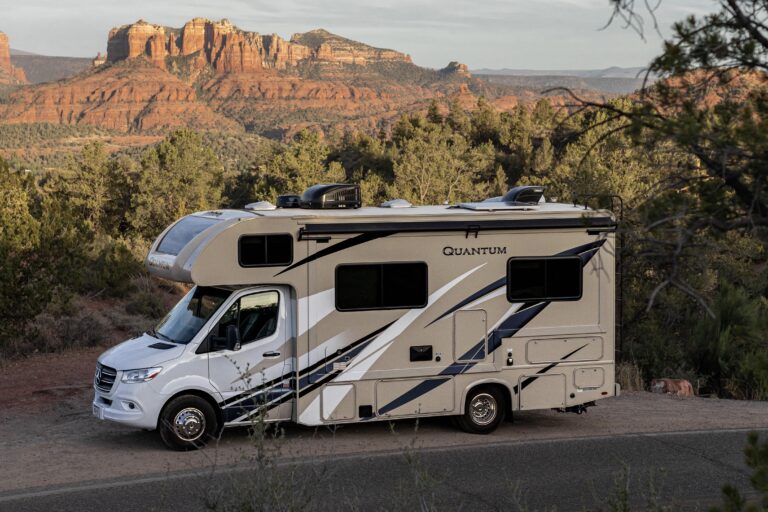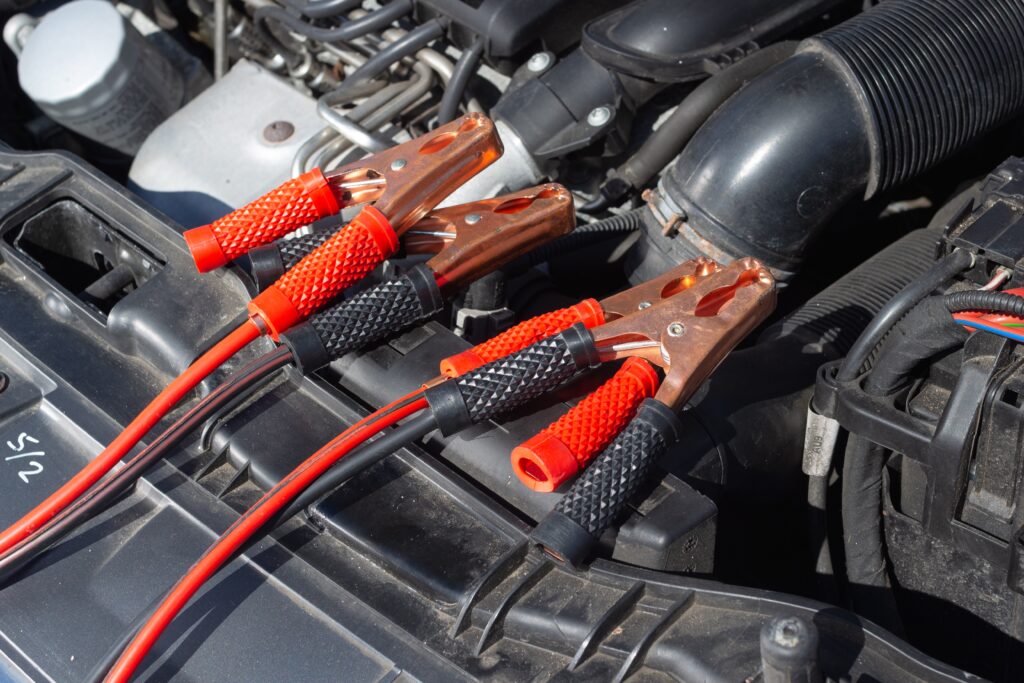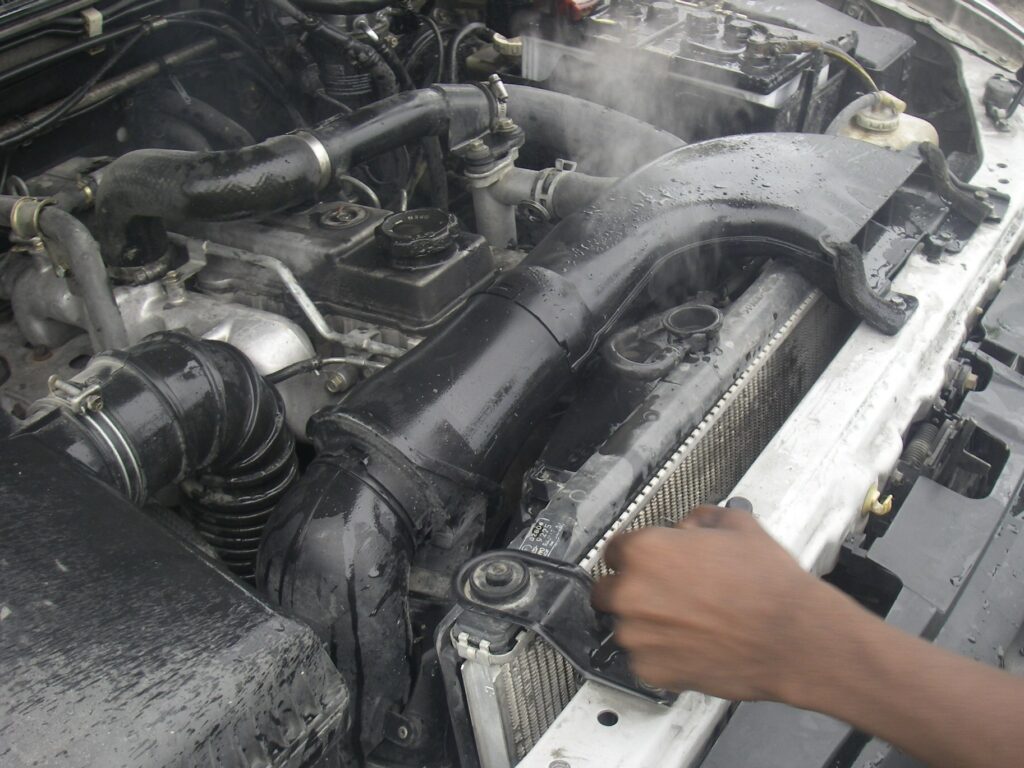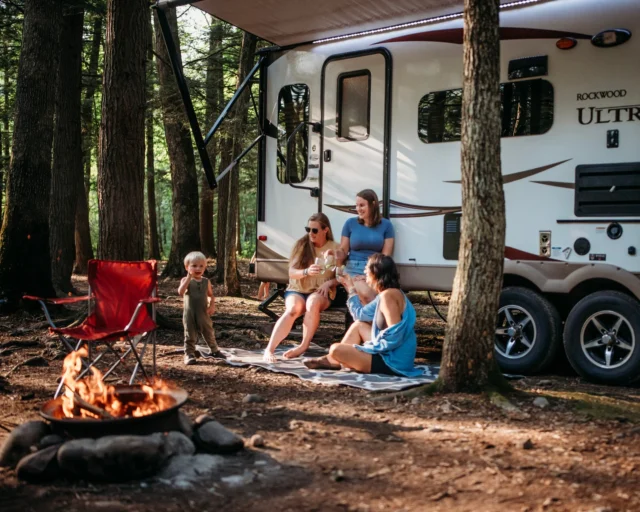
Absolutely nobody wants to deal with a broken-down vehicle while on vacation. Unfortunately, even the most well-maintained vehicles do break down from time to time, and sometimes these breakdowns will occur during a getaway. In fact, even rental RVs can occasionally have problems. Therefore, it’s good to know what to do if your RV rental breaks down.
Obviously, the first thing to do when a problem with the vehicle comes up is contact the RV owner. In some cases, the problem could merely be one of those vehicle quirks and the owner might have a super simple solution. If that’s not that case, you might need to do a bit of basic troubleshooting.
In this article we are going to address some of the most common problems RVs can have, as well as how to fix these issues and get yourself back on the road as quickly as possible. We’ll also talk about what to if your RV rental breaks down and the troubleshooting tips below don’t cut it.

Some Common Issues to Troubleshoot
Let’s say you’ve contacted the RV’s owner and they have no clue what’s going on. There are some super simple things you can check out on your own. Often, you will find the problem quickly and easily by checking these things, and because they are all easy fixes, you’ll be able to continue your trip relatively quickly.
Ensure There is Sufficient Fuel
It might seem a bit obvious, but when you’re busy having fun, it can be easy to forget to fill the gas tank. Therefore, it’s a good idea to make absolutely sure the RV has enough fuel. If you find the tank is empty, simply top it up using a gas can—ensuring you use the right kind of fuel—and you should be able to get going again without issue.
Look for Bad Battery Connections
Over time, the connections to any vehicle’s battery can become loose and corroded. Take a peek at the battery connections under the hood. If they’re dirty, carefully remove them from the battery, clean them thoroughly with baking soda, vinegar, and a toothbrush, and then tightly screw them back into place. If they seem loose, simply tighten the connections down. This might fix your problem.
Check for a Dead Battery
It’s also possible that the RV’s battery is just dead, especially if either its headlights or the cab light were accidentally left on for a long period of time. In this case, you can try jumping the battery with a second vehicle. If you aren’t traveling with another vehicle, consider asking a camping neighbor to jump you. If the RV runs on diesel, you’ll want to have it on neutral before jumping it. This is super important to remember especially if it’s an older model. If this won’t work, you will need to contact roadside assistance to help. Info on how to do that is at the bottom of this article.
In most cases, jumping the battery once and letting the vehicle run for a while will be enough to keep you going for the rest of your trip. If the battery dies again though, you might need to talk with the owner about how to go about getting a new battery installed.
Other Things to Check
If the three common issues listed above aren’t the problem, there are a few more things you can check. These are less common problems but are worth looking into before you call roadside assistance to have the vehicle towed.
Press the Key In
You might need to push the key in a bit harder when starting the vehicle in order to ensure the key catches properly. This is more common in older RVs.
Check the Gear
No RV will start if it’s in the wrong gear. Unfortunately, some older rigs have sloppy shifters and may not be in the gear you think they are in. Check the gear on the RV you’re driving to ensure it is definitely in park before you try to start it.
Push the Brake Pedal
There are some vehicles that require the driver to press down on the brake pedal while starting the engine. If you aren’t accustomed to doing this in your own vehicle, you might not do it when starting the rental RV, and this could cause a no-start situation.

Tips to Avoid Overheating an RV
One of the most common problems that people driving RVs face during the summer
is the engine overheating. RVs are heavy vehicles and they run hot. Add in the summertime temperatures and some steep climbs, and you have a recipe for an overheating vehicle.
Allowing the engine to overheat can cause some serious damage that could totally ruin your trip. Therefore, you definitely want to avoid this situation if at all possible. Here are our tips for doing just that.
Ensure Coolant is Full
Before you start your trip, check the engine coolant with the RV owner. Ensure it is full, and if it isn’t, ask the owner to top it off.
Slow Down
If you find yourself climbing a hill, take it slow. There’s no reason you need to race to the top—you are on vacation, after all—and attempting to get there quickly could mean sitting on the side of the road for much more time than it would take to climb the hill at a slower pace. For this reason, slow and steady is the way to go.
Don’t worry what the other drivers around you think. Put on your hazard lights and let them go around you as they will.
Find the Right RPM
Finding the right RPM when climbing a hill is important because the RV’s engine is what runs the water pump that sends coolant to the whole system. Additionally, it is what keeps the cooling fan moving.
If your RPM is too low, your fan won’t be running fast enough to be effective and coolant will be running through the system more slowly. Meanwhile, a high RPM puts a heavy load on the engine, which is no good. Therefore, a moderate RPM is your best bet. Look at your gauge, find the middle ground, and try to keep the RPM there.
Turn Off the A/C (and Turn On the Heater)
Okay, so this one is going to make you uncomfortable for a few minutes, but if you’re climbing a hill and realize the engine is starting to get hot, it could save you from having problems. In order to take some load off your engine, turn off the air conditioner. It’s also a good idea to turn on the heater, as this moves hot air away from the engine.
Of course, you’ll want to roll the windows down if you find yourself in a situation where this is necessary.
Strategically Plan Your Travel
Finally, because RVs are prone to overheating, we highly recommend accounting for the possibility of overheating when planning your travels. If you will be driving in mountainous areas, consider hitting those grades in the early morning or late evening when the temperatures are cooler. Another option is to avoid RV travel in mountainous areas during the hottest months, opting to stick to flatter parts of the country for June through August.
What to Do if the Engine Overheats Anyway
- Stop the vehicle immediately.
- Open the hood.
- Allow the engine to run at a moderate RPM with the heater running until cooled.
- Consult the RV’s owner to decide next steps.
Depending on a variety of factors, the owner of your RV could ask you to sit until the engine has cooled and then continue on your way, or they may need you to check and fill the coolant once the engine has been off for a while and is all the way cooled. In a worst-case scenario, they could also feel it is necessary to take the RV to a repair shop if it seems damage has been done. Fortunately, this is an unusual occurrence.
RVshare 24/7 Roadside Assistance
If all else fails and the RV simply isn’t going to get going so you can continue your trip, the next step is to contact the RVshare 24/7 roadside assistance. This service is provided by Questx Tow Network (or simply “Quest”) and includes the following:
- Towing Service
- Tire Service
- Battery Service
- Lockout Service
- Extraction and Winching
- Delivery of Supplies
- Tele-Tech Services
- Mobile Mechanic
With so many available services, this roadside assistance program will absolutely be able to help you with your broken-down rental RV.
To contact the RVshare roadside assistance, call (855) 229-9696. You will need your RVshare reservation number, a description of the problem, and your location. Quest may also ask for permission to use your cell phone in order to pinpoint your location.
Hopefully you never have to use the information in this article. That said, if you do, you can avoid stressing out over what to do and jump right into action.






